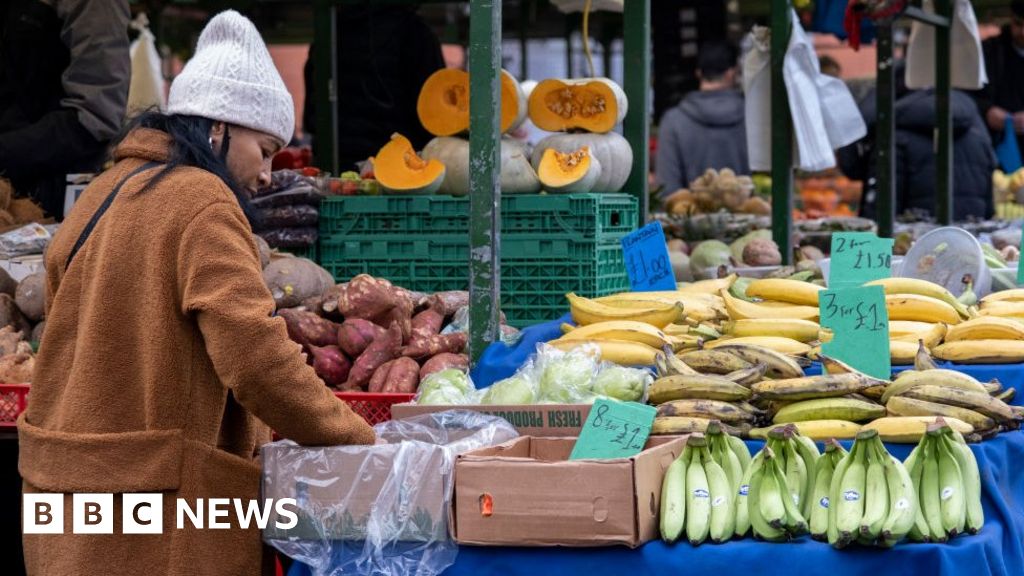Food prices saw their first monthly fall in two years in September, but fuel prices rose sharply, official figures show.
It came as the overall rate of inflation held steady at 6.7%, ending a run of three consecutive monthly falls.
The price of milk, cheese and eggs all decreased, easing the pressure at supermarket tills, the Office for National Statistics said.
But petrol increased by 5.1p per litre, hitting drivers at the pumps.
Analysts had expected the overall rate of inflation to fall slightly, and the ONS said there may be “some disappointment” about the unchanged figure.
However, its chief economist, Grant Fitzner, told BBC Radio 4’s Today programme: “If you look across Europe, many countries have seen either periods lately of no change or in some cases of actual increases in the headline rate, before they started to resume their falls.”
On Tuesday, figures showed wages outpaced inflation for the first time in almost two years between June and August.
However, many households remain under pressure because of the high cost of living and charities have warned things could get worse this winter.
Hannah Nagy, a mum-of-two from Stainland in West Yorkshire, told the BBC she was still struggling.
The recruitment professional said that her pay had gone up by about 5% since April but that it “hasn’t really touched the sides particularly with the cost of shopping”.
“It’s not going towards holidays or days out – it’s going towards electricity, petrol, food, shopping – day-to-day living,” she said.
Mrs Nagy said the pace of price rises meant she felt like she was in a better position a few years ago when she earned less but things didn’t cost as much.
The cost of a weekly shop has soared over the last two years due to supply chain issues and the war in Ukraine, and on an annual basis food price inflation remains high at 12.2%.
However, this is down from more than 19% in March and food prices fell by 0.1% between August and September, led by dairy produce and soft drinks.
The only food category that went up was fish, led by frozen prawns.
By contrast, the ONS said drivers were again being hit at the pumps as global oil prices rise.
Between August and September, petrol rose to an average of 153.6p per litre and diesel by 6.3p to 157.4p per litre.
Oil prices rose last month after Saudi Arabia and Russia, members of the Opec+ cartel of oil-producing nations, decided to cut production to support the global market.
Events in Israel and Palestine have sparked fears of further increases.
Mr Fitzner said: “The current conflict in Israel and Palestine is in an area of non-oil producers but obviously if this conflict spreads that could be disruptive.”





